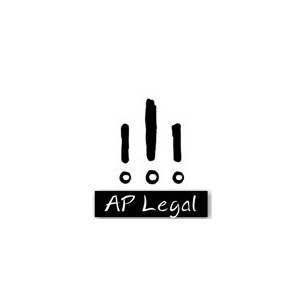Best Creditor Lawyers in Fiji
Share your needs with us, get contacted by law firms.
Free. Takes 2 min.
Or refine your search by selecting a city:
List of the best lawyers in Fiji
About Creditor Law in Fiji
Creditor law in Fiji is part of the broad gamut of commercial law that encompasses dealings with debt. The Fijian legal and economic system encourages transactions and activities that lead to economic growth, and at its core is the capability to enforce creditor-debtor relationships. This domain of law involves aspects such as issuing of credit, creating security over assets, loan repayments, and handling instances of insolvency and bankruptcy. Fiji regulates these aspects through a variety of legislation such as the Bills of Exchange Act, the Companies Act, the Insolvency Act and the Bankruptcy Act.
Why You May Need a Lawyer
Legal help in the field of creditor law is indispensable in several instances. This can be required if you're a financial institution providing loans and need to ensure your documentation is enforceable under local laws. You may also need legal counsel when you're dealing with insolvent debtors, drafting loan agreements or establishing securities. If you are a business facing financial difficulties and a barrage of creditors, legal help is advisable to understand your obligations and potential avenues for restructuring. A lawyer is also necessary when navigating the complex and often stringent judicial proceedings of bankruptcy.
Local Laws Overview
The foundation of creditor law in Fiji is split among several key pieces of legislation. The Companies Act supervises general business dealings and the issuing of credit. It outlines the obligations of the companies in relation to pay back loans. The Insolvency Act handles instances of insolvency, provides provisions for when creditors can lodge a petition for insolvency, specifics about how assets are to be distributed among creditors and the consequences of insolvency for the debtor. The Bankruptcy Act deals with individual bankruptcy and parallels many of the provisions seen in the Insolvency Act but on an individual level. The Bills of Exchange Act oversees matters related to promissory notes, bills of exchange, and related instruments.
Frequently Asked Questions
What constitutes a creditor in Fiji?
A creditor is an individual or institution to whom money is owed by another individual or a business.
How is insolvency defined under Fijian law?
Insolvency, under the Insolvency Act, is defined as the inability to pay debts as they become due from your own money.
What is involved in the insolvency process in Fiji?
Insolvency proceedings involve proving the debtor's insolvency, appointing a receiver, and orderly distribution of the debtor’s assets to pay back creditors.
Is bankruptcy in Fiji similar to insolvency?
Bankruptcy is a form of insolvency, however, it specifically relates to individuals, whereas insolvency can apply to individuals and companies.
What are the ramifications of bankruptcy on an individual?
Bankruptcy can have severe impacts on a debtor's credit score, and capacity to borrow in the future. It can also result in the loss of property and assets.
Can a bankrupt person in Fiji be relieved of their debts?
Yes, bankruptcy can discharge certain debts, but some debts like student loans, and certain taxes are not eligible for a discharge.
How are assets distributed amongst creditors in insolvency?
Assets are typically divided on a proportional basis amongst creditors in insolvency after the sale of the debtor's assets.
What rights do secured creditors have?
Secured creditors generally have a higher priority than unsecured creditors and have the right to seize or sell the asset secured to recoup their losses.
What obligations do companies have to creditors?
Companies are legally bound to repay their debts to creditors as stipulated in the agreement in which they took on that debt.
Do all loans need to be written into a contract?
While it is not always mandatory for loans to be written into a contract, it is highly recommended for proof, enforcement, and clarification of terms and conditions.
Additional Resources
In addition to seeking advice from qualified legal practitioners, resources such as the Fiji Revenue and Customs Services, the Legal Aid Commission and the Reserve Bank of Fiji could provide additional assistance or advice in this field. Additionally, going through Fiji’s Companies Act and the Insolvency Act can offer insights into the legal framework governing creditors in the country.
Next Steps
If you require legal assistance, it is beneficial to find a lawyer specializing in creditor law to help you understand your position, obligations, and rights. This expert would guide you in drafting agreements, establishing securities, handling insolvency proceedings or seeking fair resolutions in insolvency or bankruptcy matters. Remember, understanding your legal standing and being proactive can help secure your financial interest in the best possible way.
Lawzana helps you find the best lawyers and law firms in Fiji through a curated and pre-screened list of qualified legal professionals. Our platform offers rankings and detailed profiles of attorneys and law firms, allowing you to compare based on practice areas, including Creditor, experience, and client feedback.
Each profile includes a description of the firm's areas of practice, client reviews, team members and partners, year of establishment, spoken languages, office locations, contact information, social media presence, and any published articles or resources. Most firms on our platform speak English and are experienced in both local and international legal matters.
Get a quote from top-rated law firms in Fiji — quickly, securely, and without unnecessary hassle.
Disclaimer:
The information provided on this page is for general informational purposes only and does not constitute legal advice. While we strive to ensure the accuracy and relevance of the content, legal information may change over time, and interpretations of the law can vary. You should always consult with a qualified legal professional for advice specific to your situation.
We disclaim all liability for actions taken or not taken based on the content of this page. If you believe any information is incorrect or outdated, please contact us, and we will review and update it where appropriate.
Browse creditor law firms by city in Fiji
Refine your search by selecting a city.











